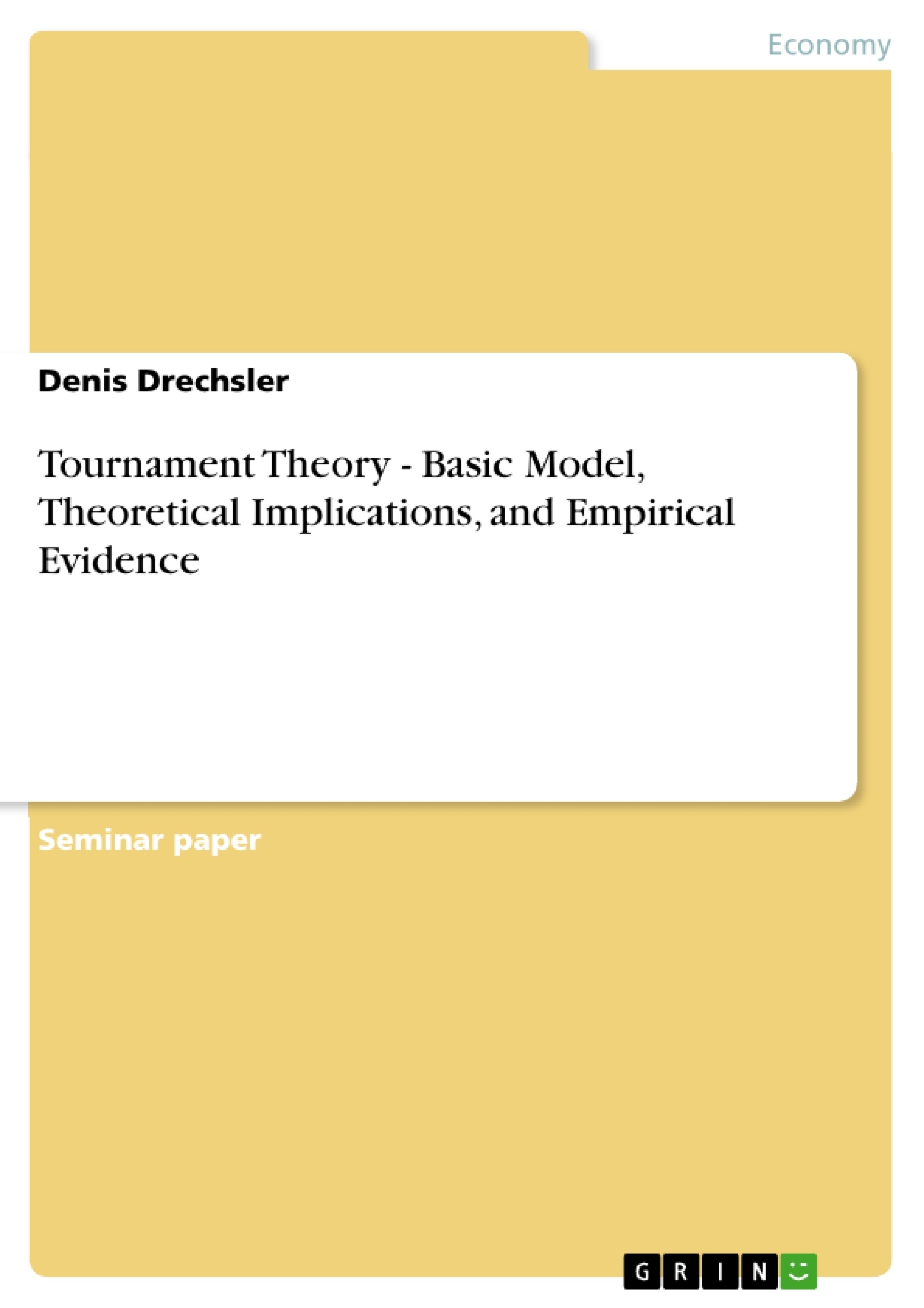Wie lassen sich Unterschiede im Lohnniveau erklären? Tournament Theory vertritt die Ansicht, dass Firmen eine auf Anreize ausgelegte Beförderungsstrukture wählen, die einem Turnier gleicht. Damit, so die Befürworter der Theorie, lassen sich die hohen Gehälter von Unternehmensvorständen sowie die weite Spanne zwischen den Gehältern der Unternemensführung sowie der übrigen Belegschaft erklären. Die vorliegende Arbeit präsentiert die Grundtheorie und erläutert anhand vieler Beispiele, wie diese Anwendung finden kann im täglichen Leben. Untersucht werden u.a. die Bereiche des professionellen Sports, große Aktienunternehmen sowie kleine und mittelständische Unternehmen.
Table of Contents
- Introduction
- Basic Model
- Testing Tournament Theory
- Experimental Studies
- Professional Sports
- Studies on the Corporate Level
Objectives and Key Themes
This paper aims to provide a comprehensive overview of tournament theory, including its basic model, implications, and empirical evidence. It focuses on the theoretical framework and examines how tournament theory can explain various phenomena in labor economics.
- The relationship between workers' relative performance and their compensation.
- The use of tournaments as a mechanism to overcome information asymmetry in labor markets.
- The impact of tournament theory on wage structures, promotions, and executive compensation.
- The role of noise and effort in tournament outcomes.
- Empirical studies on the validity of tournament theory in different settings.
Chapter Summaries
The introduction provides a foundation for the paper, discussing the evolution of compensation schemes and the limitations of standard economic theory in explaining wage determination. It introduces the concept of tournament theory as an alternative framework for understanding work relationships.
The section on the basic model delves into the core principles of tournament theory. It outlines the key assumptions and predictions of rank-order tournaments, including the importance of relative performance, fixed prize structures, and the role of noise in effort-productivity relationships. The model highlights how tournaments can incentivize workers and overcome the challenges associated with measuring individual output.
Keywords
Tournament theory, rank-order tournaments, incentive mechanisms, relative performance, wage determination, labor economics, information asymmetry, effort-productivity relationship, empirical evidence, experimental studies, professional sports, corporate level.
Frequently Asked Questions
What is the core idea of Tournament Theory?
Tournament Theory suggests that firms use incentive-based promotion structures resembling a tournament to motivate employees and determine compensation.
How does the theory explain high executive salaries?
It argues that large pay gaps between management and the rest of the workforce act as "prizes" that incentivize lower-level employees to work harder to win the promotion.
In which fields is Tournament Theory applied in this paper?
The paper examines applications in professional sports, large corporations, and small to medium-sized enterprises (SMEs).
What role does "noise" play in the tournament model?
"Noise" refers to factors outside an individual's control that can affect performance outcomes, which the model must account for when measuring effort.
Why are tournaments useful for labor markets?
They help overcome information asymmetry, where it is difficult for employers to measure an individual's exact productivity directly.
- Quote paper
- Denis Drechsler (Author), 2004, Tournament Theory - Basic Model, Theoretical Implications, and Empirical Evidence, Munich, GRIN Verlag, https://www.grin.com/document/186067



